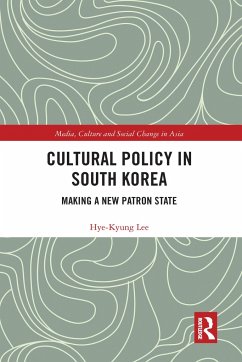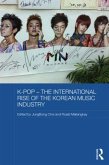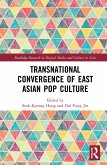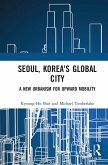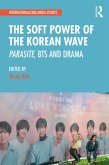This is the first English-language book on cultural policy in Korea, which critically historicises and analyses the contentious and dynamic development of the policy. It highlights that the evolution of cultural policy has been bound up with the complicated political, economic and social trajectory of Korea to a surprising degree. Investigating the content and context of the policy from the period of Japanese colonial rule (1910-1945) until the military authoritarian regime (1961-1988), the book discusses how culture, often co-opted by the government, was mobilised to disseminate state agendas and define national identity. It then moves on to investigate the distinct characteristics of Korea's contemporary cultural policy since the 1990s, particularly its energetic pursuit of democracy, a market economy of culture and outward cultural globalisation (the Korean Wave). This book helps readers to understand the continuous presence of the 'strong state' in Korean cultural policy and its implications for the cultural life of Koreans. It argues that this exceptionally active cultural policy sets an important condition not only for artistic creation, cultural consumption and cultural business in the country, but also for the nation's ambitious endeavour to turn the success of its pop culture into a global phenomenon.
This book is a captivating and greatly needed addition to cultural policy studies. As the first English-language book on Korean cultural policy, it aptly historicizes the evolution of Korean cultural policy since the early 20th century and clearly articulates diverse perspectives embedded in the national cultural policy. By rendering the tensions and negotiations among various theoretical and practical frameworks, in particular between state-developmentalists and neoliberal globalists, surrounding major cultural policy issues, it clarifies the reasons why media scholars, cultural producers, and policy makers refocus on cultural policy in the ever-growing Korean cultural industries and the Korean Wave contexts. Without a doubt, this is timely and an indispensable chaperon for researchers and students who are interested in cultural policy studies, globalization studies, media studies, and Korean studies. - Dal Yong Jin, Simon Fraser University
For those of us less familiar with Korean history, Hye-Kyung Lee gives us a richly contextualised and accessible account of cultural policies since the era of Japanese colonial rule, explaining their evolution both in terms of South Korea's own political dynamics since the 1940s and the nationally diffracted effects of globalization. At the same time, Lee has extensive familiarity with Anglophone discussions of cultural policy, and the book represents an incisive and original intervention in those discussions. In particular, it recasts or 'provincializes' prevailing conceptions of state-culture-economy relations, and shows an admirable awareness of the broad range of fronts on which cultural policies have operated. - Jeremy Ahearne, University of Warwick
In this timely book Hye-Kyung Lee examines the history of state patronage in South Korea during the twentieth century, culminating in the current era sometimes described as the Korean Wave. She considers trajectories of cultur
For those of us less familiar with Korean history, Hye-Kyung Lee gives us a richly contextualised and accessible account of cultural policies since the era of Japanese colonial rule, explaining their evolution both in terms of South Korea's own political dynamics since the 1940s and the nationally diffracted effects of globalization. At the same time, Lee has extensive familiarity with Anglophone discussions of cultural policy, and the book represents an incisive and original intervention in those discussions. In particular, it recasts or 'provincializes' prevailing conceptions of state-culture-economy relations, and shows an admirable awareness of the broad range of fronts on which cultural policies have operated. - Jeremy Ahearne, University of Warwick
In this timely book Hye-Kyung Lee examines the history of state patronage in South Korea during the twentieth century, culminating in the current era sometimes described as the Korean Wave. She considers trajectories of cultur

